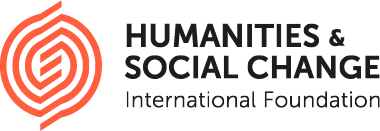Third workshop
30 September 2019
Centre for research in the arts, social sciences and humanities (crassh), cambridge

The Giving Voice to Digital Democracies project hosted its third workshop on 30th September 2019 at the Centre for Research in the Arts, Social Sciences and Humanities (CRASSH). The project is part of the Centre for the Humanities and Social Change, Cambridge, funded by the Humanities and Social Change International Foundation.
This workshop, focused on the impact of artificial intelligence on society, specifically on language-based technologies at the intersection of AI and ICT (henceforth ‘Artificially Intelligent Communications Technologies’ or ‘AICT’) – namely, speech technology, natural language processing, smart telecommunications and social media. The social impact of these technologies is already becoming apparent. Intelligent conversational agents such as Siri (Apple), Cortana (Microsoft) and Alexa (Amazon) are already widely used, and, in the next 5 to 10 years, a new generation of Virtual Personal Assistants (VPAs) will emerge that will increasingly influence all aspects of our lives, from relatively mundane tasks (e.g. turning the heating on and off) to highly significant activities (e.g. influencing how we vote in national elections). Crucially, our interactions with these devices will be predominantly language-based.
Despite this, the specific linguistic, ethical, psychological, sociological, legal and technical challenges posed by AICT (specifically) have rarely received focused attention. Consequently, the workshop examined various aspects of the social impact of AICT-based systems in modern digital democracies, from both practical and theoretical perspectives. By doing so, it provided an important opportunity to consider how existing AICT infrastructures can be reconfigured to enable the resulting technologies to benefit the communities that use them.
The project Giving Voice to Digital Democracies investigates the social impact of Artificially Intelligent Communications Technology (AICT). The talks and discussions of this second workshop focused specifically on different aspects of the complex relationships between language, gender, and technology. The one-day event brought together experts and researchers from various academic disciplines, looking at questions of gender in the context of language-based AI from linguistic, philosophical, sociological, and technical perspectives.
Listen to the talks here:
Dr Marcus Tomalin (University of Cambridge, Project Manager)
Dr Ella McPherson (University of Cambridge)
Maria Luciana Axente (Pricewaterhouse Coopers)
Dr Shauna Concannon (University of Cambridge)
Dr Trisha Meyer (Free University of Brussels – VUB)
Text by Stefanie Ullmann and Marcus Tomalin
Videos filmed and edited by Glenn Jobson
